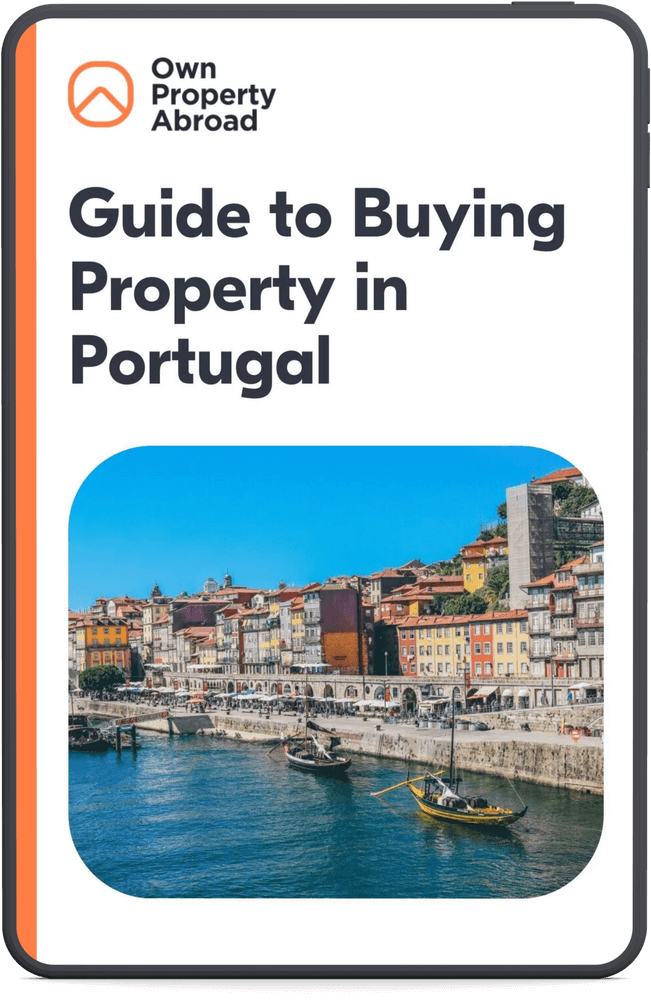Understanding mortgages in Portugal
The concept of mortgages in Portugal is not much different from other places. The essence is to secure a loan to purchase a property and gradually pay it off with an interest rate over a specific period. But hold on – this country has some cool perks that make getting a mortgage in Portugal as a foreigner even more enjoyable.
Valuable insights and practical advice, distilled from years of expertise and real-world experience.


Advantages of getting a mortgage in Portugal as a foreigner
Several advantages might catch your interest regarding obtaining a mortgage in Portugal as a foreigner. Let’s look at these perks that could make your property dreams even more achievable.
1. Favorable interest rates
One advantage of getting a mortgage in Portugal as a foreigner is the availability of lower interest rates compared to some European nations. This can result in less interest paid over the life of the mortgage, allowing more investment opportunities without high-interest costs.
2. Attractive incentives
The Portuguese government is offering incentives to attract foreign investors. These incentives can lead to better mortgage conditions, such as reduced down payments, lower interest rates, and other financial benefits. This means that owning property in a desirable location is easier and more financially flexible.
3. Potential for long-term savings
With lower interest rates and potential government incentives, securing a mortgage in Portugal as a foreigner could lead to substantial long-term savings. By paying less in interest and potentially benefiting from financial perks, you can allocate your resources toward other priorities, whether it’s enhancing your property, exploring the country, or simply securing your financial future.
4. Investment opportunity
Portugal’s real estate market has been gaining attention, and rightfully so. This offers both the chance for personal enjoyment and the potential for investment returns. By taking advantage of the favorable mortgage terms and government initiatives, you could be positioning yourself to make a wise financial move that could pay off in more ways than one.
5. Diverse property options
Portugal offers various property options, from historic city centers to serene countryside and breathtaking coastal areas. With favorable mortgage conditions, you’ll have more opportunities to explore and choose the property that perfectly aligns with your vision and lifestyle.
Requirements for getting a mortgage in Portugal as a foreigner
Foreigners looking to secure a mortgage in Portugal must meet specific requirements to navigate the application process smoothly. Here’s what you need:
1. Valid passport
A valid passport is a crucial document that establishes your identity and nationality. It’s one of the primary forms of identification that lenders will ask for when you’re applying for a mortgage in Portugal as a foreigner.
2. Portuguese taxpayer number (NIF)
To engage in any financial transactions in Portugal, including obtaining a mortgage, you’ll need a Portuguese taxpayer number, commonly known as NIF (Número de Identificação Fiscal). This unique number is essential for tax purposes and helps the Portuguese authorities track your financial activities.
Take the first step towards obtaining your Portuguese NIF by clicking the button below and completing the process online. For only $150, you can easily acquire your NIF and enjoy the benefits it offers.
3. Proof of income
Demonstrating your ability to repay the mortgage is a fundamental requirement. You’ll need to provide evidence of your income from various sources. This can include:
- Employment: You must show your employment contract and recent pay stubs if you’re employed. Lenders want to ensure you have a stable income to meet your mortgage payments.
- Retirement: If you’re retired and receive a pension, you must provide documents verifying your pension income. This could include pension statements or government-issued documents.
- Investments: If you have investments that generate income, such as rental properties or dividends, you’ll need to provide documentation that shows the income you receive from these investments.
Remember, while these are general requirements, specific lenders might have additional criteria or variations in their application process. Therefore, it’s always a good idea to consult a financial advisor or mortgage expert who can guide you through the specifics and help you prepare a strong mortgage application package.
Choosing the right mortgage option
When obtaining a mortgage in Portugal as a foreigner, it is crucial to explore the various options available to make an informed decision. Let’s take a closer look at two common types of mortgages in Portugal:
1. Fixed-rate mortgages
This type of mortgage offers a fixed interest rate throughout the loan’s duration, providing stability and predictability in monthly payments. This can be advantageous for budget-conscious individuals, who will always know how much to allocate for their mortgage payments.
Benefits:
- Predictable payments: Your monthly mortgage payments won’t change, providing financial certainty.
- Long-term planning: Fixed-rate mortgages are ideal if you prefer to plan your finances over the long term without worrying about interest rate fluctuations.
- Peace of mind: You won’t be affected by sudden interest rate increases in the market.
Considerations:
- Potentially higher initial rates: Fixed-rate mortgages might have slightly higher initial interest rates than variable-rate options.
- Less flexibility: You won’t benefit from decreased interest rates if market rates decrease during your mortgage term.
2. Variable-rate mortgages
Variable-rate mortgages, also known as adjustable-rate mortgages, come with an interest rate that can change based on market fluctuations. Initially, the interest rate is lower than fixed-rate mortgages, resulting in lower monthly payments.
Benefits:
- Lower initial payments: Variable-rate mortgages can have lower initial interest rates, making them advantageous for minimizing early monthly expenses.
- Potential for lower costs: If interest rates decrease, your payments could also decrease, potentially saving you money over time.
- Shorter lock-in periods: Variable-rate mortgages usually have shorter lock-in periods, offering flexibility in refinancing or selling your property.
Considerations:
- Interest rate uncertainty: Your interest rate can increase over time, leading to higher monthly payments.
- Budget variability: Fluctuating interest rates can make predicting and budgeting for future payments challenging.

Finding the perfect property
Before applying for a mortgage in Portugal as a foreigner, you must know the property type you want to purchase in Portugal. Understanding your preferences will guide your property search, whether it’s an urban apartment, a countryside villa, or a coastal retreat.
Applying for a mortgage in Portugal as a foreigner
The mortgage application process involves submitting your documentation to a bank or lender. They will review your financial information, credit history, and property details to determine eligibility. Having a knowledgeable real estate agent can be incredibly helpful during this stage.
Documentary requirements
As you embark on the mortgage application process, gather essential documents that comprehensively view your financial situation. Be prepared to present:
- Proof of income: This could include pay stubs, tax returns, and employment contracts. Lenders need to assess your ability to make mortgage payments.
- Bank statements: Recent bank statements demonstrate your financial stability and showcase your ability to manage mortgage payments.
- Property information: Details about the property, such as its location, type, and estimated value, contribute to the lender’s evaluation.
Property valuation and survey
A property valuation and survey are often required to protect you and the lender. This step involves professionals assessing the property’s value to ensure it aligns with the loan amount. A thorough evaluation safeguards against overestimating or underestimating the property’s worth, promoting fairness and transparency.
Approval and terms
If your application is approved, you’ll receive a mortgage offer outlining the terms and conditions. This document is crucial, as it details aspects like the interest rate, repayment schedule, and any additional fees. Before accepting the offer, take the time to review these terms carefully. If needed, seek legal advice to ensure you fully comprehend the agreement you’re entering into.
Closing the deal
Once you’ve accepted the mortgage offer, it’s time to seal the deal. This involves working with a notary to meet all legal requirements during the property purchase. The notary verifies the transaction’s legitimacy and registers the property in your name, officially solidifying your ownership.
Tax implications and financial considerations
Owning property in Portugal comes with financial responsibilities, including property transfer tax and annual property taxes. Understanding these tax implications and incorporating them into your budget planning is crucial. Being well-informed allows you to manage your finances effectively and avoid any surprises.
Insurance protection for your investment
Protecting your investment and loved ones is paramount. Consider obtaining property and life insurance to provide a safety net if unexpected events, such as accidents or unforeseen circumstances, arise. These insurance policies offer peace of mind, ensuring your hard-earned investment remains secure.
Buy property in Portugal with Own Property Abroad
Do you want to buy property in Portugal? Own Property Abroad can assist you and ensure a seamless and hassle-free property journey, whether selling or buying real estate in Portugal. Thanks to our knowledge and experience in the local market, we can help with legal requirements, finding suitable properties, negotiating the best deals, and conducting due diligence.
With our expert team, you won’t have to navigate the complexities of the Portuguese real estate market alone. For further information on how we can assist you, kindly drop your details below or email us at [email protected]. Let’s start working on your property success story today!
Valuable insights and practical advice, distilled from years of expertise and real-world experience.


Frequently Asked Questions (FAQs)
Can I get a mortgage as a non-resident in Portugal?
Portugal welcomes non-residents to apply for mortgages. The country’s real estate market is open to international buyers, and many lenders offer mortgage options to foreigners. So whether you’re considering a charming Lisbon apartment or a picturesque villa in the Algarve, you can explore mortgage opportunities to make your property dreams a reality.
Are there any restrictions on the type of property I can buy with a mortgage?
There are no significant restrictions on the type of property you can purchase using a mortgage in Portugal. Both residential and commercial properties are accessible through mortgages. This means that whether you’re looking for a cozy home or a business space, a mortgage could potentially assist you in acquiring your desired property.
Is choosing a fixed or variable interest rate better?
The decision between a fixed and variable interest rate depends on your financial circumstances and risk tolerance. Opting for a fixed interest rate provides stability in your monthly payments over the long term, shielding you from potential interest rate fluctuations. On the other hand, a variable interest rate might offer lower initial costs, but it comes with the possibility of rate changes.
What is the typical mortgage term in Portugal?
In Portugal, mortgage terms typically range from 5 to 40 years. This broad spectrum enables you to tailor your mortgage to your needs and preferences. Shorter terms can lead to faster ownership, while longer terms may result in lower monthly payments. Evaluating your financial situation and plans will help determine your ideal mortgage term.
Are there prepayment penalties if I pay off my mortgage early?
While many mortgages allow for early repayment, some might have prepayment penalties. These penalties can vary and are often linked to the type of mortgage and the terms you’ve agreed upon. It’s crucial to thoroughly review your mortgage agreement and discuss potential penalties with your lender. Being well-informed will help you make sound financial decisions regarding your mortgage repayment strategy.





